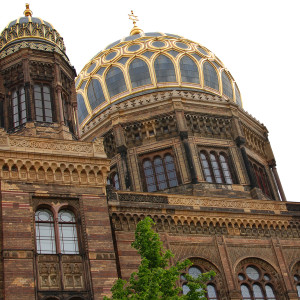Europe’s firearm policies should be reformed to enable Jews to defend their communities and institutions against terrorist attacks. That demand came from Rabbi Menachem Margolin, head of the Rabbinical Centre of Europe and the European Jewish Association, days after the January 7 murder of four shoppers at a kosher supermarket in Paris by an ISIS terrorist and eleven employees of the satirical magazine Charlie Hebdo at the hands of Al-Qaeda affiliates.
In a letter to the interior ministries of all European Union states, Rabbi Margolin wrote: “Let there be no doubt, we are asking that all weapons will be issued for self protection only, and to designated personnel that will undergo thorough investigation and training by local authorities.” His plea was reported in Newsweek and the Daily Mail in Britain, but Margolin received no official reply.
Then it happened again: On February 14 and 15 in Copenhagen, a terrorist murdered a film director at a café and a security guard at a synagogue. The guard was not even armed.
Europe’s restrictive laws ensure that law-abiding persons may not own or carry firearms for defense. Terrorists, who acquire guns on the black market, laugh at such laws.
The recent atrocities remind of us of a time in Europe when Jews were prohibited from mere possession of a firearm. In response to street fighting in Germany in the 1920s, the Weimar Republic enacted stringent gun laws that gave the government discretion to deny permits to “untrustworthy” persons and to register and confiscate guns for “public safety.”
Adolf Hitler conveniently inherited this gun control scheme when he seized power in 1933. He quickly disarmed and crushed his political enemies, notably the Social Democrats.
As the Nazi dictatorship consolidated its power, anti-Semitic measures followed. In 1935, the Nuremberg Laws were adopted, depriving Jews of the rights of citizenship. Shortly thereafter, Werner Best, second in command to the Gestapo, issued a directive to all police authorities stating that “firearms in the hands of the Jews represent a considerable danger for the German people,” and thus no gun permits should be issued to them.
By the autumn of 1938, Hitler’s henchmen were preparing to launch a major pogrom. Jewish assets were confiscated. To ensure that they could not resist the onslaught that was to come, police throughout Germany ordered the Jews to surrender all firearms. Since the firearms were registered, the police knew who had them. The many who complied lined up at police stations to turn in their guns, after which they were interrogated by the Gestapo. Those who did not had their houses searched and were arrested.
Propaganda Minister Joseph Goebbels wrote in his diary: “[Police Chief] Helldorf has completely disarmed the Jews in Berlin. They will have to get prepared for a lot more.”
The onslaught known as Kristallnacht, or the Night of the Broken Glass, began on November 9, 1938. Synagogues were torched, houses ransacked, businesses vandalized, women and children terrorized, and men thrown into concentration camps. Anyone who resisted was ordered to be shot. Further to ensure that Jews were deprived of any means of defense, SS head Heinrich Himmler decreed: “Jews are forbidden to possess any weapon. Violators will be condemned to a concentration camp and imprisoned for a period of up to 20 years.”
As historian Gerald Schwab put it in the title of his book, Kristallnacht was “The Day the Holocaust Began.” The fact that it was preceded by the general disarming of the German Jewish community is strong evidence that the pogrom was planned well in advance. When the deportations to the death camps in the East began, the final step before boarding the trains was a weapons search.
Meanwhile, the Nazi war machine rolled over Europe. In every place it occupied was the proclamation: Surrender your firearms within 24 hours or face execution. Not everyone complied, helping to make possible the first Resistance groups.
Goebbels himself recognized that an armed populace was a roadblock in his path. About the 1943 Warsaw Ghetto Uprising, which impeded deportations to the death camps and allowed partisans to escape and fight from the forests, he wrote: “The Jews have actually succeeded in making a defensive position of the Ghetto. . . . It shows what is to be expected of the Jews when they are in possession of arms.”
This year marks the seventieth anniversary of the end of the nightmare years of World War II. Fortunately, the recent atrocities against European Jews pale in comparison to the genocide that Hitler inflicted. But make no mistake: Anti-Semitism is alive and well in Europe. Its chief source is Islamic extremism. Every person, every community, has a basic human right to defend life. Rabbi Margolin is absolutely right.

